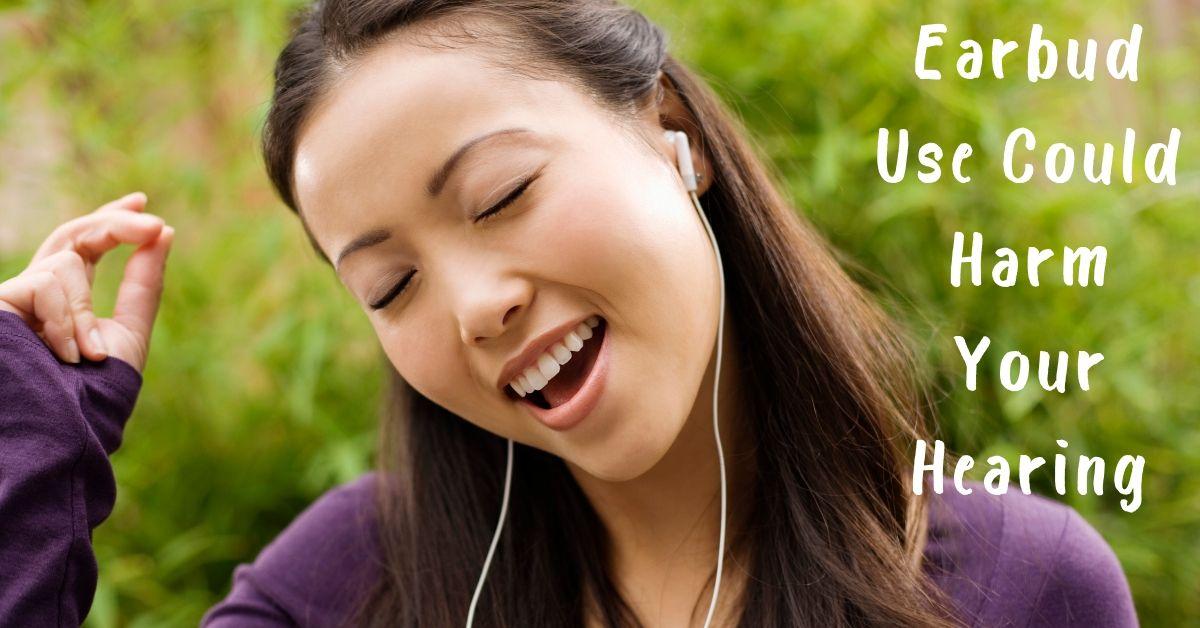- The Benefits of Being Social for Older Americans - February 29, 2020
- Common Excuses for Not Buying Hearing Aids - February 29, 2020
- How Treating Hearing Loss Improves Your Relationships - February 18, 2020
In this day and age, we enjoy being mobile and wireless and hands-free, while staying connected and entertained. We can travel and listen to our favorite music, watch movies and read our choice of books on the same device. As we take advantage of technological advances for recreational use, we also expose ourselves to some of its disadvantages.
The World Health Organization (WHO) states: “1.1 billion young people (aged between 12–35 years) are at risk of hearing loss due to exposure to noise in recreational settings.” If we pay attention to the warning signs of noise-induced hearing loss and empower ourselves with proper hearing practices, we can protect our hearing and sustain our natural hearing ability.
The use of earbuds has increased as we enjoy the ease and convenience of hearing our music, podcasts and watching our favorite TV shows and movies on the go. It’s a great way to stay entertained and insulated on our commute to work or when multitasking at home. What happens to our hearing when it is constantly exposed to sound from earbud use?
The danger of earbuds
Placing earbuds in your ears for prolonged periods of time will negatively impact your hearing. The process of sound depends upon many mechanisms working at their optimum levels. A constant stream of noise from earbuds that are located at the entrance of your ear canal can prove to be very damaging. It is not only the volume but the length of time that causes the erosion of important processes that determine the quality of sound.
Let’s familiarize ourselves with some crucial players in the process of sound. Within the cochlea, a fluid-filled organ located in the inner ear, there are many minute hairs that line its walls. These minute hairs, known as cilia are instrumental in carrying sound waves from the cochlea to the auditory nerve and connects to the brain. The stronger the waves due to increased volume bends the cilia as it moves the sound waves. Damage is incurred when the strength and the length of time the sound waves stress the cilia to a point when it can longer retain its sensitivity and resilience.
For example, when people have attended a loud concert and can’t hear properly for a while, the reason is that the cilia have been bent to a point where they need time to recoup to their former capacity. The problem arises when the sound volume and exposure reach a level that permanently damages the cilia resulting in hearing loss.
A decibel is a unit of measurement of sound, and 85 decibels/dB is the range that is safe for our ears. For you to get a better idea of what levels of sound are detrimental to the ear, you can get a good idea from this infographic https://www.nidcd.nih.gov/health/listen-infographic provided by the National Institute of Deafness and Other Communicative Disorders.
What can we do to maintain our hearing health?
If you have any doubts or are experiencing any issues with your hearing an appointment with a hearing health professional to get comprehensive testing would be in order. In the meantime, there are some guidelines we can follow.
Follow the 60/60 rule which basically means we should keep our volume at 60% and listen for no more than 60 minutes a day. With the prevalence of earbud use, you would be surprised how much we subject our ears!
Carry and use earplugs! This is a simple and very effective method to safeguard your hearing. When circumstances are out of our control and we are immersed in heavy-duty construction noise or an unexpectedly loud social event your earplugs will come in handy.
Seeking Treatment for Hearing Loss
Unfortunately, many people wait an average of 7 years to attend to their hearing needs after they have already been diagnosed with hearing loss. Whether it is embarrassment or negative stereotypes associated with hearing impairment, one thing is certain; our hearing practices and an immediate assessment will make the difference in retaining our natural hearing ability.
Noise-canceling headphones are a viable option to earbuds if you are realistically unable to regulate your earbud use. Whether you are a musician or an avid music lover, there is also the option of molded earplugs which are much more sophisticated than regular earplugs and are made for students and teachers of music.
All Ear Doctors
At All Ear Doctors, we encourage you to give us a call so that we can answer any questions or queries you might have about your hearing health. We have the expertise that can guide you to a better hearing experience and equip you with the appropriate treatment and options for a fuller, richer hearing life.

